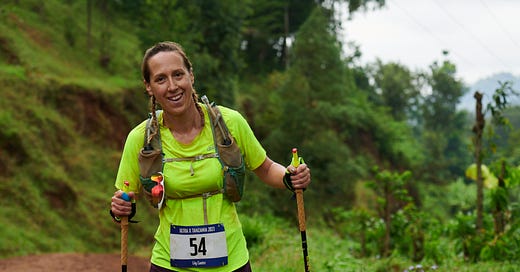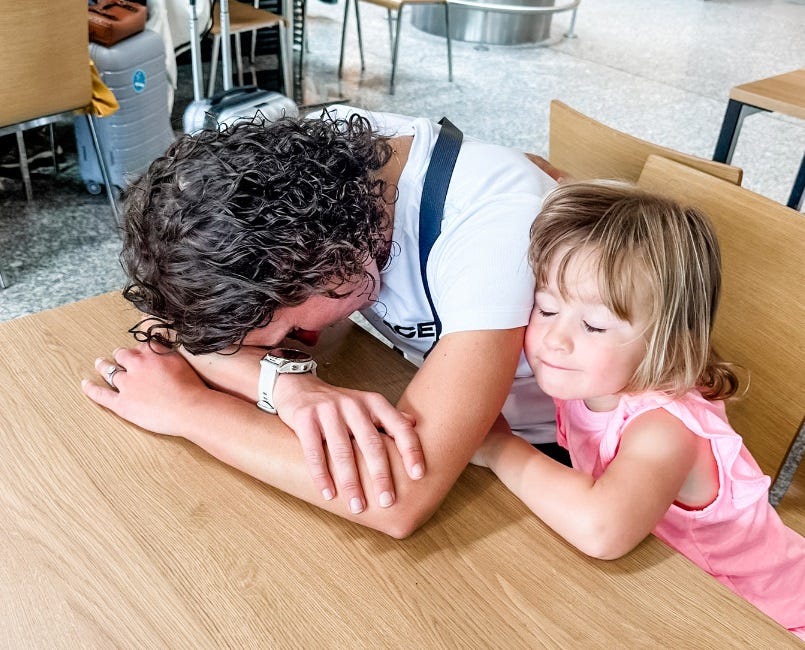For the past two years I’ve been working on a big secret project. I can’t say exactly what it is yet, but it’s related to running. As part of this project I conducted a survey of female runners. The results weren’t used in the final project in the end, but I wanted to share them because I think they make for interesting reading.
The survey looked at why women compete in races up to marathon distance but then participation significantly drops off at ultra marathon level. While some marathon races have a 50/50 gender split most ultras are just 20% female.
Keen to understand why women who ran 5k, 10k, half marathons and even marathons, would never consider running an ultra marathon, I surveyed 600 recreational female runners.
Almost half of these women had run at least one marathon and more than a third had covered at least a half marathon distance. And yet 40% said they would not consider running an ultra.
Why are women more willing to train for a marathon than an ultra marathon?
Time to train was the biggest factor preventing women from participating in ultras, followed by injury, but the third most common reason was a lack of self- belief. The phrases "I'm not capable of running that far" and "I just don't think I could physically do it" were frequently given as way of explanation.
Others were more explicit about their lack of confidence, with one woman responding: "Mentally my head takes over when I run any race, even parkruns. My anxiety leading up to a run is quite overwhelming about feeling that I’ll not being able to run." And many referred to a marathon as being their physical and mental "limit".
Confidence is undoubtedly a barrier for some women when it comes to stepping up to ultra distance but the factor that irrefutably restricts women more than anything else is time. In my survey 48% of responses referred to a lack of time to train for such a long distance event. And this is hardly surprising when women have five hours less leisure time than men, per week, according to the Office for National Statistics.
Women have five hours less leisure time than men, per week
Another key barrier is mum guilt. Data from Women in Sport demonstrates that mothers often put their needs behind everyone else which make prioritising physical activity difficult. This also came through in my survey with mothers commenting that caring responsibilities were a fundamental barrier to participation.
"My children would need to be older so I can commit more time to training", said one mother, whilst another said it was maybe something she would do once her children were at university when she had more time and family support.
Others were still reeling from the guilt of marathon training: "I felt the marathon completely took over my life and took too much time away from my children. Mum guilt at its worst and I don’t think I would want to commit to that again."
But where in the surveys, literature and general conversation about racing do you ever hear men talk about dad guilt? It's very rare. While dads are seen as heroic when they complete an endurance event, “good mother identity” simply does not align with sport.
"There's an enormous amount of social pressure on women when they become mothers to perform in a particular way in order to be comfortable in their role. Gender ideology in our society is so deeply ingrained," sociologist Bethan Taylor-Swaine told me.
Post motherhood it becomes even harder for women to "ask" for time to train, says mother-of-three and world record holder Sophie Power.
"It means less women are going to be able to do these long challenges. The societal barriers are very well documented: free time, self belief and a sense of belonging and that's compounded amongst the minority groups in society."
Sophie Power on her record breaking run
“Oh man, it’s so bad. I’m chronically exhausted, it’s just a joke,” blurts Sophie Power milliseconds after I say ‘hello, how are you?’ The SheRACES founder is speaking to me on the phone, munching chocolate cake, just five days after her record breaking run across Ireland.
And when women do prioritise their own well-being they can find themselves chastised by their peers - both female and male. Mimi Anderson took up running in her thirties and was soon breaking world records but rather than being applauded she faced backlash. "Some people scolded me for leaving my kids at home, as if I was selfish - but I needed some me time," she says.
Time for women to prioritise themselves
So for all those women out there who think an ultra marathon is not for them - think again. The training is very similar to a marathon and in many ways it can be easier as the focus is on time on feet rather than speed. Hiking with the family could be one of your training sessions or walking cross country to school and back (as Sophie Power does every day).
It’s important to prioritise yourself, your health and your mental wellbeing. If you are a mum, ask partners, family and friends to look after the kids. Don’t feel guilty. Think of the amazing example you are setting as a happy, active, independent role model. Research shows that the more active the parents, the more active and healthy the children.
And men, be allies. Tell your partners to go for that long run. In fact, insist on it. Not all women need to be ultra runners but they do all deserve to prioritise themselves.
I will be announcing more about my ‘secret project’ very soon - so if you haven’t already subscribed to this newsletter, please press the button below!
Thanks for reading this week’s newsletter. If you have any running news for me, let me know! Send feedback to lilycanter@yahoo.co.uk or suggest topics you’d like me to cover.







Lily I have never had any inclination to do a marathon let alone an ultra one but I hear you loud and clear on your point about mothers. I’m getting much better at carving time for myself but I see so many of my friends almost disappearing under the weight of their family responsibilities. It’s a really sad thing for women. Appreciate you banging the drum!